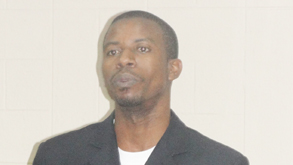Donor support for Malawi | Malawi Nation
Published on July 1, 2011 at 2:10 PM by FACE OF MALAWI

Pic By Malawi Nation
Some civil society organisations say Malawi’s future looks bleak unless government implements conditions set by key donors operating under the Common Approach to Budget Support (Cabs).
The NGOs have said the conditions include devaluation of the kwacha, adherence to good governance and improvement of bilateral relations with some Cabs member nations.
According to some NGOs that met representatives of the donor community on Wednesday last week, the donors expressed concern about lack of a credible national development strategy after the expiry of phase one of the Malawi Growth and Development Strategy (MDGS).
Benedicto Kondowe, Civil Society Coalition for Quality Basic Education (CSCQBE) national coordinator, on Thursday confirmed attending the meeting. He said the donor representatives also raised, as a matter of concern, the enactment of retrogressive laws such as the Injunctions Bill and the amendment to Section 46 of the Penal Code which gives powers to the Minister of Information to ban local publications deemed not in public interest.
Said Kondowe: “It appears that the picture is gloomy for Malawi. It is also seems that it is not automatic that the Cabs can swing to our favour because of other few outstanding issues.”
Kondowe said the most sticky issue to unlock the frozen donor support, as it transpired during the meeting, is government’s failure to come up with a position on the foreign exchange regime which is believed to be the major source of problems such as fuel shortage and declining imports.
He also said the Cabs donors are unhappy with the Malawi’s human rights record, governance issues and the recent expulsion of British High Commissioner Fergus Cochrane-Dyet.
But Kondowe said donor partners also need to appreciate the fact that government has an obligation to protect people by ensuring that policies and negotiations on the devaluation of the kwacha need to have a human face.
The meeting was also attended by the Malawi Economic Justice Network (Mejn) and ActionAid, among the local NGOs, and the International Monetary Fund (IMF) and the European Union, according to Kondowe.
Mejn executive director Dalitso Kubalasa said it was clear from the Cabs position that the budgetary support was not automatic even if government manages to bring the IMF programme back on track.
“Indeed, it was emphasised that the ball is pretty much in the hands of government for continued ‘urgent need’ for contact and dialogue. So, the destiny still remains in government’s final say and decision to correct or bring redress mechanisms after all is said and done,” he said.
When contacted for a comment on Thursday, the EU representative at the meeting declined to respond to issues raised saying whatever was discussed was not for the public.
However, in a statement released on June 13 2011, the Cabs expressed concern over the 2011/12 zero-deficit budget in light of challenges facing the country such as sluggish tobacco revenues, rising fuel and fertiliser prices and major imbalances in the foreign exchange market.
Cabs also raised concern over failure by government to successfully conclude the second review of IMF programme which is crucial to guaranteeing donor support.
A State House statement published on Thursday says President Bingu wa Mutharika made the position clear to the development partners that when the currency is devalued, it would affect the poor people since prices of basic commodities would rise.
Finance Minister Ken Kandodo said government is optimistic the IMF programme will be back on track and unlock the funds that are being withheld by donors.


